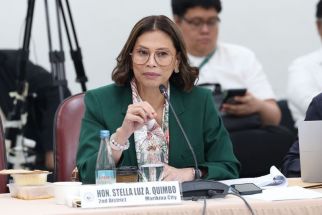DA urged to junk minimum access volume for chicken

MANILA, Philippines - The United Broiler Raisers Association (UBRA) is urging the Department of Agriculture (DA) anew to scrap the minimum access volume (MAV) allocation for chicken.
MAV is the amount of imports of an agricultural product allowed into the country at a customs duty lower than the out-quota customs duty.
Agriculture Secretary Proceso Alcala has created a group comprised of DA and poultry industry stakeholders to review the MAV scheme.
In an interview with The STAR, UBRA external vice president Elias Jose Inciong said there was “recognition” but not necessarily an agreement for the poultry industry to reduce production to address the oversupply which is causing the live farmgate price of chicken to drop.
The recognition, Inciong explained, is supposed to result in a “natural cutback,” but those who want to continue production are free to do so.
“There was no agreement to reduce production,” Inciong clarified, “rather there was a recognition of the need to cut back on production.”
Thus, Inciong said what would happen would be a natural cutback, but those who are exporting would be allowed to continue their production.
Inciong said the oversupply of chicken in the market was attributed to over-importation under the MAV allocation.
Chicken importations as of August this year has reached 64 million kilos, he noted. For the whole of 2009, chicken imports amounted to 67 million kilos.
Agriculture Assistant Secretary Dr. Davinio Catbagan had earlier told The STAR that MAV utilization as of Aug. 31 has already reached 72 percent compared to last year’s utilization of 92 percent.
The yearly MAV allocation is 23.590 million kilos.
The MAV allocation was a commitment of the Philippines to the World Trade Organization (WTO).
MAV imports are subject to a 40 percent tariff.
However, since 2005, the MAV quota of 40 percent has already equalized with the out-quota tariff.
The DA, however, continues to retain the MAV.
In 2007, under then Agricultural Secretary Arthur Yap , there was a review of the MAV allocation but the DA opted to retain the MAV allocations.
Inciong stressed that “importations should be based on necessity and not on greed.”
The UBRA official lamented the fact that while a special safeguard on chicken has already been put in place, the MAV structure continues to be maintained resulting in a sort of “club” for long-time MAV holders.
“If there are changes in the international market price of chicken, irregardless of local supply, chicken imports under MAV still come in,” he said.
Based on a US Department of Agriculture (USDA) Foreign Agricultural Service GAIN (Global Agricultural Information Network) report, chicken importation by the Philippines last year increased by 47 percent and is forecast to continue increasing this year.
According to the USDA FAS-GAIN report, the majority of Philippine chicken imports came from the United States (41 percent), Canada (38 percent) and Brazil (21 percent).
Imports of chicken leg quarters, in particular, increased by 64 percent, while imports of mechanically deboned chicken, used mainly in the production of hotdogs and processed meat products, increased by 45 percent.
In 2009 the DA approved special importations of chicken of up to 8,000 MT, exempt from special safeguard duties, which contributed to the increase in chicken trade last year.
- Latest
- Trending

























